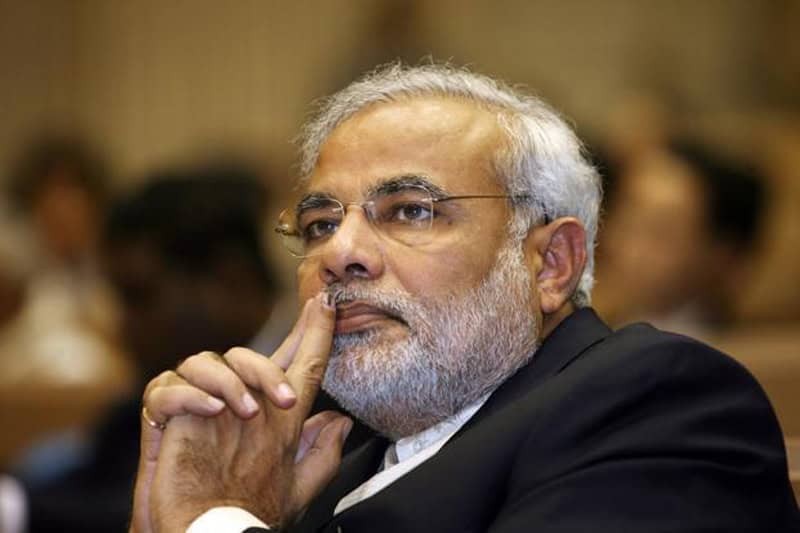NEW DELHI: If numbers go against him, will Narendra Modi accept defeat? Sounds like an absurd question but it worried me after I read the sub headline on the Op-ed page of the New York Times of May 8:
“Yes, there’s very good reason to worry President Trump won’t concede if he’s narrowly defeated in 2020.” Dignified by the NYT, such speculation begins to ring alarm bells.
The reason why Trump is being singled out for such speculation is because his political instincts resemble that of some others – Turkey’s strongman Tayyip Erdogan for instance.
In an interview, House Speaker Nancy Pelosi expressed her fears quite explicitly: “If President Trump is defeated in 2020 by a narrow enough margin, he will refuse to accept the legitimacy of the election.” What is the basis for Pelosi’s alarming prediction? Well, the example of Erdogan, his unwillingness to believe he can be defeated.
Unable to accept the fact that the electoral verdicts of two key Mayoral elections have gone against his candidates, Erdogan is throwing a fit. The result is that the country’s national election board has been pressurized by his cohorts to announce fresh elections in Istanbul.
Time was when leaders were sensitive to world opinion, particularly that of the US. In Trump’s America it is now a virtue to develop a hide as thick as a rhinoceros. As it is Americans were impervious to what others thought of them. That was American exceptionalism. A thick skin in the White House is an add-on.
The result is the US can play the world order as it pleases. It has the right to declare Erdogan a pariah and yet endorse a truly fraudulent election of Felix Tshisekedi in the Congo. Gambia’s Yahya Jammeh, who claims to cure aids by prayer, refuses to accept defeat. And the world ignores it.
Why, did not Indira Gandhi pack the Supreme Court so that she could beat the system and stay on as Prime Minister? We all know who stole the 2000 election in Florida. The point is that there is an increasing tolerance level for electoral democracy losing its sheen.
Of the names listed above, the leader who most resembles Narendra Modi is Erdogan. The politics of both is determined by their core religious beliefs. It is astonishing what little notice was taken of Modi’s first speech in Parliament in May 2014. His responsibility, he said, was to free the Hindu mind of 1,200 years of “ghulami”, which, in imperfect translation, means “serfdom”. Put it down to Congress good sense, or hypocrisy, that the Muslim rule in India was never considered “foreign”. Muslim rulers made India their home, unlike the British who ruled from London.
Let us remember, Modi’s RSS training distances him by belief from the basic tenets of electoral democracy. Notions of social justice, upward mobility, liberal democracy are anathema to votaries of a rigid caste structure. As the great sociologist M.N. Srinivas noted: “What is Hinduism without caste?” Given this absolute reality, a votary of Hindutva which is what Modi is, can only use the democratic system for as long it is useful. There have been others in history.
In Muslim practice Taqaiyya is a tactic of self-preservation. In other words a group can project an image which need not tally with its core beliefs. Modi is no democrat but is firmly on the democratic bandwagon, by way of taqaiyya. Once he has exhausted the limits of this system and has all the institutions of the state in his control, he can unfurl his ultimate agenda – begin to remove the constitutional prohibition on declaring a Hindu Rashtra. The goal is as clear as it is impossible to achieve in a country of bewildering variety where every currency note has its denomination indicated in 17 languages, many of them with classical literatures predating Christ.
Erdogan’s taqaiyya followed a distinct script. Brutalities inflicted on Bosnian Muslims, ignored by Europe, had a direct impact on the Turkish elections of 1995. Bosnia was, after all, once a province of the Ottoman Empire. The Islamist Refah party under Necmettin Erbakan, guru to Erdogan, was a mismatch with Ataturk’s uncompromising, secular constitution. Erbakan was removed, his party disbanded. That is when Abdullah Gul and Erdogan founded the secular, AKP or Justice and Development party. This was their taqaiyya.
Basically, Erdogan is Muslim Brotherhood in his deep heart’s core. Brothers would be a torrent in Egypt and Turkey but have been held in check by a US and Israel backed army in Egypt and Ataturk’s secular constitution and a western elite (albeit declining) in Ankara and Istanbul. In both the countries Brothers cannot be held back in perpetuity. Which means that Erdogan’s goal may be distant but doable after a frightful roller coaster ride. Turkey will not remain the Turkey we know. His anti-democratic urge will cause Europe to jam the turnstile. Unless Erdogan is replaced by a moderate.
Modi’s Hindu Rashtra aspiration is not only undoable but, in pursuit of the goal, dangerously divisive. Hindutva growing into full blown oak in the Hindi belt will make this belt look very different to, say, the South. To the already frightful caste and communal polarization we will have introduced a dangerous North-South faultline.
As I said at the outset, an anti-democratic wave is building up across the globe threatening even the norms of electoral democracy. The outcome of 2019 falling prey to megalomania in this category will throw the nation into tumult. The cause of that questionable quantity called Hindutva will not advance a jot.
Years ago I had described the Sari, Sangeet and Sanskrit as the triple S matrix which is emblematic of the civilizational strength that binds us all in a larger civilizational Hinduism, totally different from the narrow, sectarian mischief which Amit Shah describes as “transformational”.
(Saeed Naqvi is a senior commentator on political and religious affairs. The views expresses are personal. He can be reached on saeednaqvi@hotmail.com)
[source_without_link]IANS[/source_without_link]

